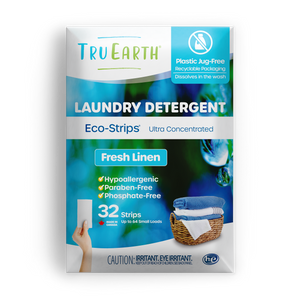Maintaining a clean and fresh-smelling shower drain is essential for a pleasant bathroom experience. Over time, shower drains can become clogged with hair, soap scum, and other debris, leading to slow drainage and unpleasant odors. While there are various commercial drain cleaners available, many homeowners wonder if they can use a natural alternative like vinegar to clean their shower drain effectively.
We will explore the benefits and limitations of using vinegar as a drain cleaner and provide you with a comprehensive guide on how to use it safely and efficiently. From understanding the science behind vinegar's cleaning properties to step-by-step instructions, we have all the information you need to keep your shower drain in top-notch condition.

The Cleaning Power of Vinegar
Vinegar is a natural and versatile cleaning agent known for its acidic properties. The acetic acid in vinegar has mild disinfectant properties, making it effective in breaking down soap scum, mineral deposits, and other gunk that can accumulate in your shower drain. Additionally, vinegar is non-toxic and environmentally friendly, making it a popular choice for those looking for natural cleaning solutions.
Using Vinegar to Clean Your Shower Drain
If you're considering using vinegar to clean your shower drain, follow these steps for a safe and effective cleaning process:
1. Gather Your Supplies
To get started, you'll need distilled white vinegar, baking soda, a pot of boiling water, and a cup or small container.
2. Remove Debris
Before pouring anything down the drain, remove any visible debris like hair or soap scum that may be sitting near the drain opening. Use a pair of gloves and a drain snake or tweezers for this step.
3. Pour Baking Soda
Start by pouring about half a cup of baking soda down the drain. Baking soda is an excellent natural deodorizer that will help break down any stubborn residues.
4. Add Vinegar
After pouring the baking soda, slowly pour a cup of vinegar down the drain. You will notice a fizzing reaction as the vinegar reacts with the baking soda, creating a foaming action that helps dislodge debris.
5. Let It Sit
Allow the vinegar and baking soda mixture to sit in the drain for at least 15 minutes. During this time, the solution will work on breaking down the gunk and eliminating odors.
6. Boil Water
While the vinegar and baking soda are doing their magic, boil a pot of water.
7. Flush with Boiling Water
After 15 minutes, carefully pour the boiling water down the drain to flush away the vinegar, baking soda mixture, and any loosened debris. Be cautious not to burn yourself during this step.
8. Repeat if Necessary
If your shower drain is heavily clogged, you may need to repeat the process a few times until the water drains smoothly.
Maintenance and Prevention Tips
To keep your shower drain clean and clog-free, consider adopting these maintenance and prevention tips:
- Use a Mesh Drain Cover: Install a mesh drain cover to catch hair and larger debris, preventing them from going down the drain.
- Flush with Hot Water Regularly: Once a week, flush your drain with hot water to help prevent the buildup of soap scum and other residues.
- Avoid Pouring Grease or Oil Down the Drain: Grease and oil can solidify and clog your drain. Dispose of them properly in the trash instead.
- Regularly Clean Your Shower: Keeping your shower walls and floor clean will reduce the likelihood of debris entering the drain.
When Not to Use Vinegar
While vinegar is a natural and effective cleaner, there are instances when it's not suitable for cleaning your shower drain. Avoid using vinegar if you have:
- A Weak or Old Plumbing System: The acidic nature of vinegar can corrode older or weak plumbing pipes. Consider using alternative drain cleaning methods if your plumbing system is old or fragile.
- Recently Used Commercial Drain Cleaners: Mixing vinegar with commercial drain cleaners can produce harmful fumes and should be avoided.
Alternatives to Vinegar
If you prefer not to use vinegar or have a specific cleaning concern, consider these alternative drain cleaning methods:
Baking Soda and Salt
Mix equal parts of baking soda and table salt, and pour the mixture down the drain. Let it sit for 15 minutes before flushing with boiling water.
Commercial Enzyme Cleaners
Enzyme-based drain cleaners can effectively break down organic matter without harming your plumbing system.
Boiling Water and Dish Soap
Pour boiling water down the drain and follow it up with a few tablespoons of dish soap. Allow it to sit for a while before flushing with more hot water.
The Importance of Regular Drain Cleaning
Regularly cleaning your shower drain is not only crucial for maintaining a clean and odor-free bathroom but also for preventing more significant plumbing issues down the line.
Clogged drains can lead to water backups, pipe damage, and even mold growth, resulting in costly repairs and potential health hazards. By incorporating simple and natural cleaning practices, you can ensure your shower drain remains in optimal condition and enjoy a refreshing and hygienic bathing experience.

Get Ready For a Clean Drain
In conclusion, using vinegar to clean your shower drain can be an effective and eco-friendly solution for regular maintenance. Its natural cleaning properties, coupled with baking soda and hot water, can break down stubborn residues and eliminate unpleasant odors.
However, it's essential to consider the age and condition of your plumbing system before using vinegar, and if in doubt, opt for alternative methods. By adopting regular drain cleaning practices and preventive measures, you can keep your shower drain in top shape and enjoy a fresh and inviting bathroom environment.


